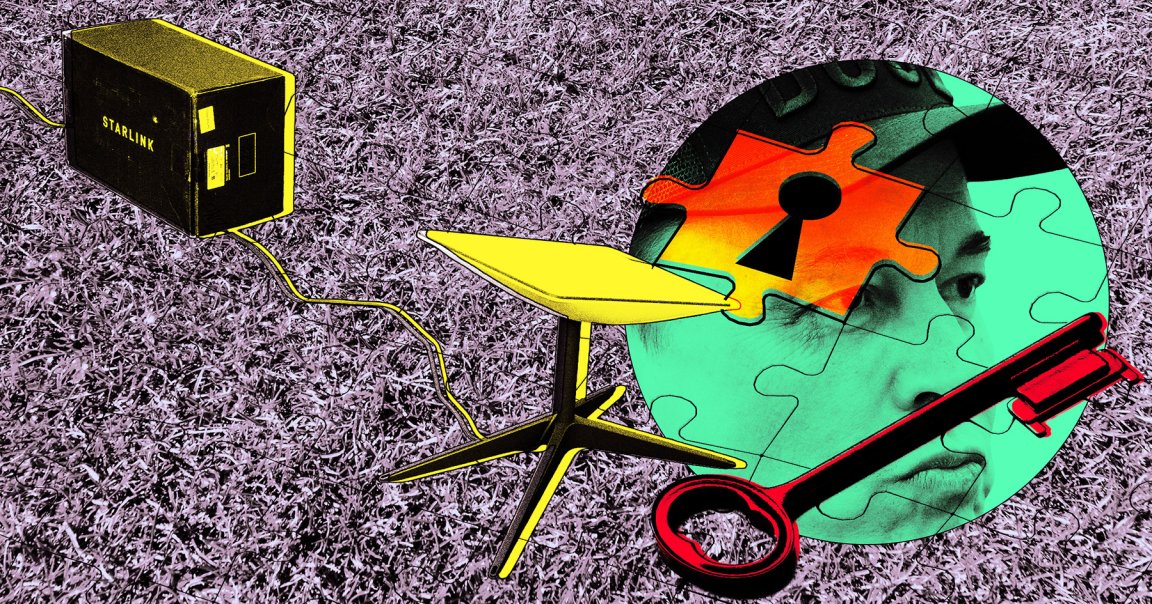
Elon Musk’s lackeys at his so-called Department of Government Efficiency installed a Starlink terminal on the roof of the White House — and then totally blew off the major security concerns raised by communications experts, the Washington Post reports.
This is the latest example of the security risks arising from DOGE’s sweeping access to federal systems, alongside the high-profile blunders made by key figures in Trump’s cabinet.
According to insiders, it sounds like the White House communications experts were totally circumvented by Musk’s group: they were given no notice that DOGE was installing the Starlink terminal — and once the satellite-based internet service was online, they had no way of actually monitoring the connections. When they voiced these concerns, the communications experts were ignored.
At one point, things got heated. The installation of the Starlink roof terminal caused a confrontation between DOGE staffers and the Secret Service, according to WaPo.
There was a lot for them to complain about. According to WaPo sources, a “Starlink Guest” WiFi network that first appeared in February is still active. It asks only for a password, with no username requirement or other form of authentication.
This is not — or at least, shouldn’t be — standard practice. Personal phones on a guest network at the White House typically need a username and a password, which are tracked and expire after a week, per WaPo. Starlink’s network, by contrast, sounds more like the free Wi-Fi at Starbucks.
“Starlink doesn’t require anything. It allows you to transmit data without any kind of record or tracking,” an insider told WaPo. “White House IT systems had very strong controls on network access. You had to be on a full-tunnel VPN at all times. If you are not on the VPN, White House-issued devices can’t connect to the outside.”
“With a Starlink connection, that means White House devices could leave the network and go out through gateways. … It’s going to help you bypass security,” another insider told WaPo.
Starlink is generally considered more secure than traditional telecommunication networks in the US, according to the reporting. But they’re not impenetrable, and security experts aren’t relishing the fact that they’re being kept in the dark about what data is being transmitted in and out of the White House via the satellite network.
It’s unclear if the rooftop terminal remains installed, or if anything will change now that Musk has stepped back from his role as a “special government employee.” That’s a substantial loose end, because Musk has recently demonstrated a legendary petty streak that saw him lash out at Donald Trump and seemingly burn all bridges with the administration.
If Musk is willing to threaten to cut off the US government’s space access using his company’s spacecraft, what else would he be willing to do? We’ve seen Musk personally intervene in Starlink’s operations in the past for political reasons. When the Ukrainian military launched an ambush on the Russian naval fleet stationed near the Crimean coast, the billionaire ordered his engineers to shut down Starlink in the region to disrupt the attack.
Starlink did not respond to WaPo’s request for comment. The Secret Service said it could not discuss specific technology systems for security reasons.
“We were aware of DOGE’s intentions to improve internet access on the campus and did not consider this matter a security incident or security breach,” Secret Service spokesman Anthony Guglielmi told WaPo.
More on Elon Musk: Trump Confronted Musk in Private Before Their Blowout Public Fight